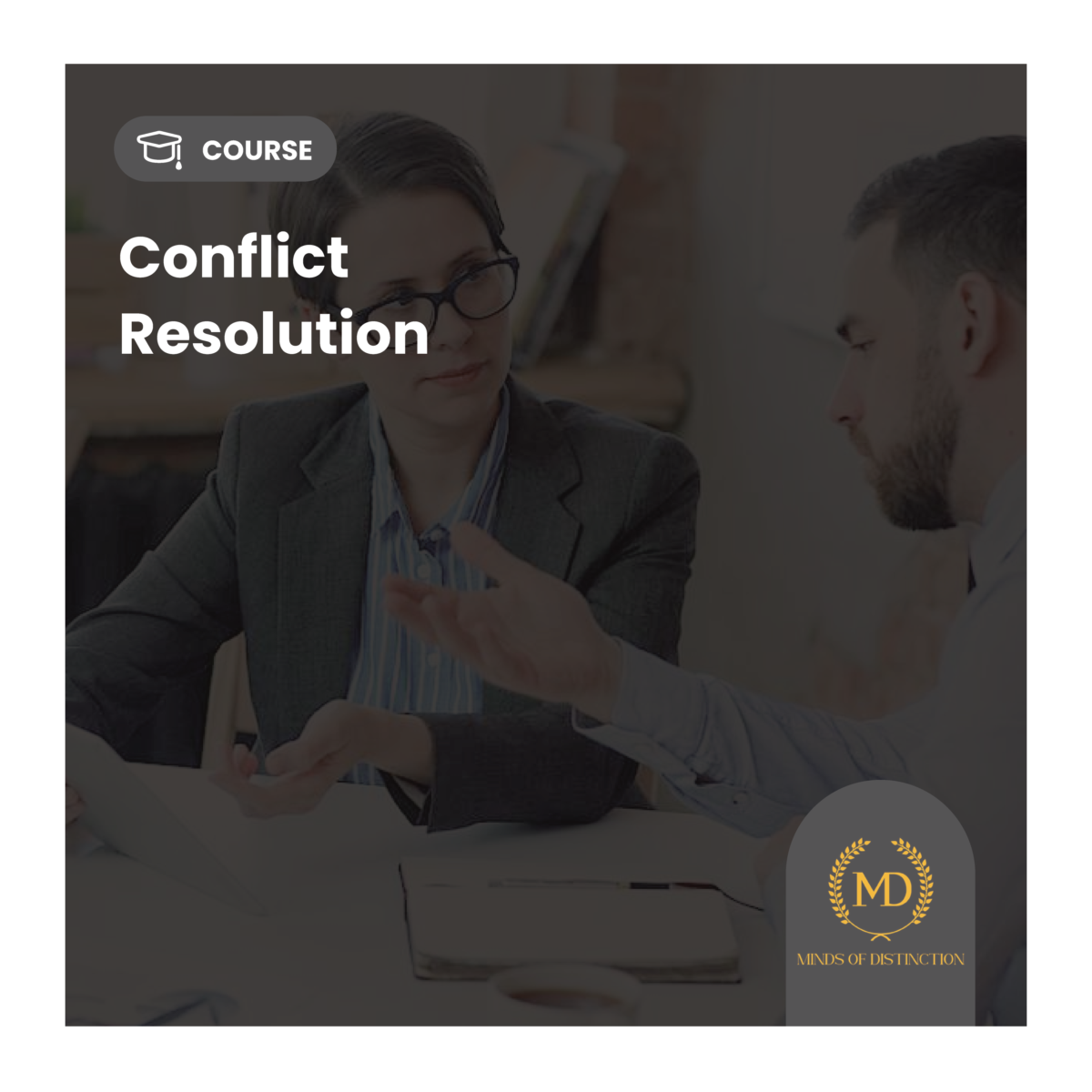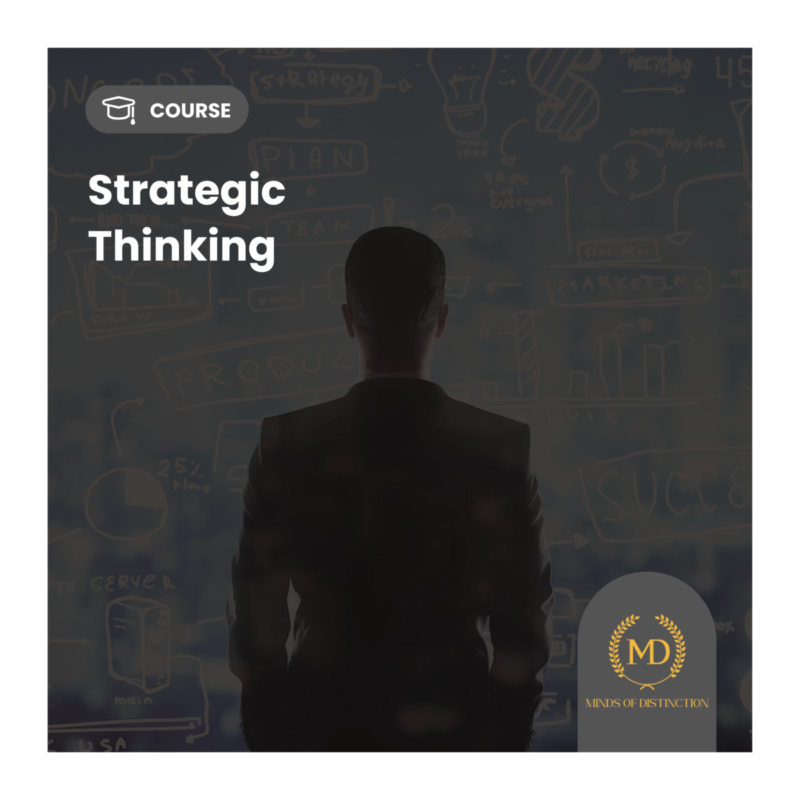Conflict Resolution
Course Description
The Conflict Resolution course is designed to provide participants with a comprehensive understanding of conflict dynamics and effective strategies to manage and resolve conflicts in various settings. This course explores the theory and practice of conflict resolution, emphasizing negotiation, mediation, and other alternative dispute resolution methods. Participants will develop essential skills to handle conflicts constructively, fostering healthier relationships and promoting peaceful resolutions.
Course Objectives
- Understand the nature and types of conflicts and their impact on individuals, groups, and organizations.
- Explore the theoretical frameworks and key concepts of conflict resolution.
- Develop effective communication and active listening skills for conflict management.
- Learn negotiation techniques and strategies to achieve mutually beneficial outcomes.
- Acquire knowledge and skills in mediation as a process for resolving conflicts.
- Analyze and manage emotions in conflict situations.
- Foster empathy and promote understanding as essential elements of conflict resolution.
- Build problem-solving and decision-making skills for resolving conflicts creatively.
- Identify cultural and diversity issues in conflict resolution and apply inclusive practices.
- Develop an action plan for applying conflict resolution skills in personal and professional contexts.
Course Outline
Module 1: Introduction to Conflict Resolution- Understanding conflict: definitions, types, and causes
- The impact of conflict on individuals, relationships, and organizations
- The role of conflict resolution in promoting positive outcomes
- Ethical considerations in conflict resolution
- Conflict resolution models and frameworks
- Power dynamics and conflict escalation
- Cognitive and emotional aspects of conflict
- Approaches to conflict analysis
- Effective communication skills for conflict management
- Nonviolent communication techniques
- Active listening and empathy in conflict resolution
- Overcoming barriers to communication
- Principles of negotiation
- Win-win negotiation approaches
- Strategies for managing difficult negotiations
- Ethical considerations in negotiation
- Understanding mediation and its role in conflict resolution
- Mediation process and stages
- Mediator skills and responsibilities
- Techniques for facilitating constructive dialogue in mediation
- Emotions in conflict: understanding and managing them
- Emotional intelligence in conflict resolution
- Self-awareness and self-regulation in conflict situations
- Building empathy and rapport with parties in conflict
- Creative problem-solving approaches
- Decision-making strategies for conflict resolution
- Identifying and evaluating alternatives
- Implementing and assessing outcomes
- Cultural influences on conflict perception and resolution
- Addressing diversity issues in conflict resolution
- Inclusive practices for promoting understanding and respect
- Cross-cultural communication in conflict resolution
- Integrating conflict resolution skills in personal and professional contexts
- Conflict resolution in the workplace, family, and community settings
- Developing action plans for conflict prevention and resolution
- Continuous learning and improvement in conflict resolution skills
Price
Contact us for a custom quote today. Prices vary based on delivery format, number of participants, duration of training, etc.Course Delivery Options

Online

On-Demand

In-Person






